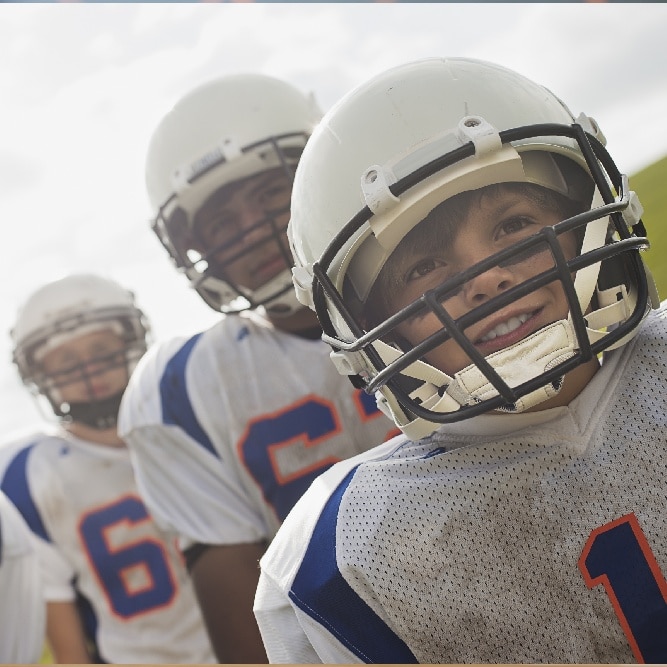Categories
If you wear glasses or contacts and play sports, you know the difficulties of keeping your vision sharp; glasses either fog over, sweat off your face, or can be crushed by a basketball. Contacts are no better as they collect debris like an outfielder shags pop flies. The team at Magruder Laser Vision has the following hints to protect your eyesight as you exercise.
When you think about football players, baseball hitters, and motorcyclists, the one item they have in common is protective helmets. Soccer players wear shin guards, boxers wear gloves, and water skiers wear life vests. Yet, with all these precautions, many sports participants forget about the proper eye protection. Think about that; bones heal, bruises fade, but an eye injury can last the remainder of your life. Depending on the sport, eye protection differs. Below are a few popular sports and how to best protect your vision for each.
-
Basketball, tennis, and racquetball: Goggles will keep elbows, fingers, and stray balls from prodding eyes. Racquetballs are the perfect size to blacken eyes since they fit snugly in the eye socket surrounding the eye, so goggles during this possible high-impact sport are essential.
-
Baseball: Line drives can be extremely dangerous. A sturdy polycarbonate or plastic face guard including eye guards or goggles protects eyes and facial bones.
-
Soccer: Eye guards are vital, especially for goalies who dive after balls and have the propensity to face plant in grass or lower their heads close to the other team’s cleats.
-
Hockey: Pucks can knock out teeth, shatter facial bones, and destroy vision. A polycarbonate or wire mask approved by USA Youth Hockey will protect your face.
-
Football: The older the player, the harder the hit. Wear a full face guard as well as eye guards.
Plan for the unexpected by wearing safety gear. It may seem safe to coach from the sidelines of a Little League game until a football cleat or baseball bat flies toward you. Many sports enthusiasts wear glasses – reading or prescription, sunglasses, or inexpensive safety glasses – for protection, but these are not specific to sports and may cause damage if they are hit directly.
Eye guards should be purchased at a sports or optical store and be labeled as ASTM F803 approved, which signifies the merchandise is performance tested and will give the ultimate protection. Be sure lenses in the eyewear are secure so they do not pop inward. Also, check for cushioning because children will balk at wearing uncomfortable protective eyewear. If the product you are planning on purchasing has an ultraviolet option, choose that.
Don’t be a statistic; more than 25,000 athletes seek eye-related treatment every year. The correct protective eyewear will keep your vision intact and your game much safer. For more information on caring for your eyes, follow our blog!
